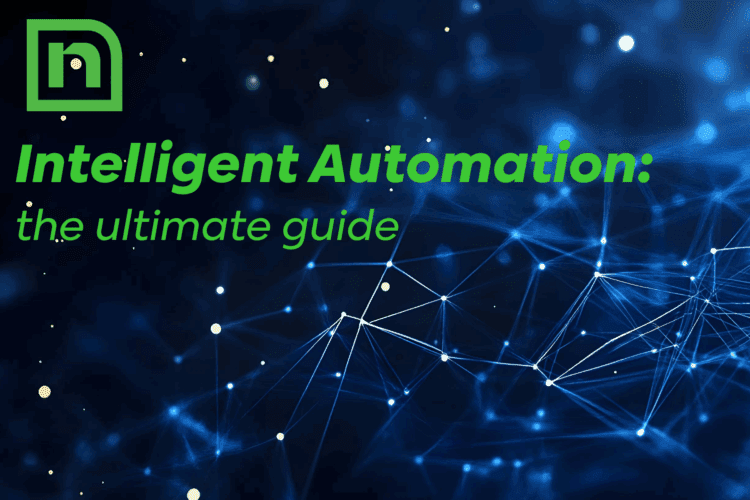We’ve already dropped our list of the top 10 technology trends for 2025, and a few themes stuck out:
- Data remains a vital asset for businesses, making data literacy and tools that make data more accessible high priorities.
- AI continues to rise, along with new use cases, tools, and ethical concerns.
- Cybersecurity is still of the utmost concern for businesses, especially with the influx of new cybersecurity threats posed by advances in AI.
So, now that we’ve established what businesses should prepare for in the new year, it’s time to dive into the how. Here are top skills 4 required for intelligent automation excellence to add to your upskilling and reskilling program that’ll help your business keep up with 2025’s most pressing business trends.
2025's Top Skills for Intelligent Automation Excellence2025’s Top Skills Required for Intelligent Automation Excellence
1. Digital Fluency and AI Literacy
When it comes to any technology implementation, digital literacy calls for employees’ understanding and ability to interact with digital tools. But when said technology is AI-based, it’s especially important, given the ethical and security ramifications that can come from their improper use. And if 2025’s technology trends are any indication, many organizations will be implementing AI tools, making this conversation all the more important.
While it’s easy to assume that staff know standard tools inside and out, it’s not wise to do so. Plus, with updates and algorithmic changes constantly coming in, everyone can stand to brush up on their skills every now and again. To boost your workforce’s digital fluency, you can:
- Conduct skills gap analyses routinely to understand the specific digital skills you’re lacking.
- Introduce mentorships and peer learning opportunities, pairing less digitally experienced employees with more digitally skilled mentors.
- Offer interactive workshops and webinars led by internal or external digital experts.
- Give staff the opportunity to practice using new tools in a controlled environment where they can ask questions. You can even offer real-world projects to give them more hands-on practice.
- Train employees to manage and control AI systems responsibly, ensuring ethical use and compliance with governance standards. They should also be equipped to identify and mitigate disinformation using advanced AI tools.
2. Analytical & Creative Thinking
A common thread of 2025’s technology trends is the need for creative applications of AI in organizations. With near limitless use cases, you’ll get the most out of this technology by finding innovative ways to weave it into your business’ unique operations. And this calls for the development of “uniquely human skills,” like analytical and creative thinking. In fact, the World Economic Forum’s Future of Jobs 2023 report found that analytical thinking and creative thinking will be top in-demand skills by 2027.
But how does one encourage the development of soft skills like analytical and creative thinking? Here are some starters:
Analytical thinking:
- Make Ongoing Learning a Habit: Continually develop your skills and knowledge by staying updated on your industry’s latest developments through online courses, workshops, and reading industry publications.
- Adopt Systems Thinking: Practice viewing scenarios as interconnected systems by looking for ways that changes in one area can impact others. Additionally, look for underlying patterns and relationships. You can even use the exercise of Scenario Planning to imagine potential scenarios and apply systems thinking to them.
Creative thinking:
- Look Outside Your Circle: Don’t limit yourself to your field when looking for ideas. Exposure to different industries, perspectives, and cultures can enrich creative thinking. Whether it’s podcasts, reading books, or observing how leading companies design their websites or social media accounts, you never know where inspiration will strike.
- Collaborate: Brainstorming or working with others from various backgrounds and even departments within your organization can inspire new ways of approaching challenges. It can even help build an innovative culture.
3. Cybersecurity
Cybersecurity remains a priority for organizations, but for new reasons. While AI has continued to rise, new security threats have emerged, like using deepfakes to step over voice and facial recognition access controls, phishing attempts, and 2025’s biggest concern, quantum computing threats. Since your organization’s security relies on your employees’ cybersecurity know-how, it’s a skill worth investing in. Here are some ways you can boost your employees’ cybersecurity prowess:
- Add routine cybersecurity training to your upskilling and reskilling plan.
- Encourage your staff to stay informed about the latest cybersecurity news, threats, and protective measures by offering suggestions for helpful social media accounts or blogs they can follow.
- Facilitate cybersecurity drills or simulations of cyber attacks like ransomware and phishing so they’ll know what signs to look for and how to respond in crisis scenarios.
- Host webinars highlighting your organizational policies and procedures and how to use your company’s cybersecurity tools and resources like antivirus software, firewalls, and more.
4. Data Analysis
Having a few technical leaning “data champions” driving your organization’s strategic decisions is great, but do you know what’s even better? Having a data-savvy workforce, technical and non-technical folks included. After all, data is only as valuable as your staff’s ability to interpret and use it for better insights.
First, be sure to inspect your current data sources, applications, and platforms for accessibility and user-friendliness. If it falls short of expectations, it may be worth investing in an option that can be easily used and therefore has a greater impact. Then, make sure your upskilling and reskilling program covers:
- The basics of how to use your analytics tools.
- Practicing how to draw meaningful conclusions from datasets and how to put it into action.
- Data ethics, especially how to identify potential bias and the data’s validity and sourcing.
- Role-specific skills. This won’t just enable them to put their data knowledge into routine action, but it’ll help them see the direct benefits data know-how can have for them.
Gear Up for 2025
By investing in these top skills required for intelligent automation we’ve just discussed, your organization won’t just stay ahead of the current digital transformation trends. You’ll also empower your workforce to thrive in a rapidly evolving digital landscape, which will serve them now and in the future. Ultimately, a technology-positive, adaptable workforce will be a vital asset in 2025 and beyond, so there’s no better time to start than now.






